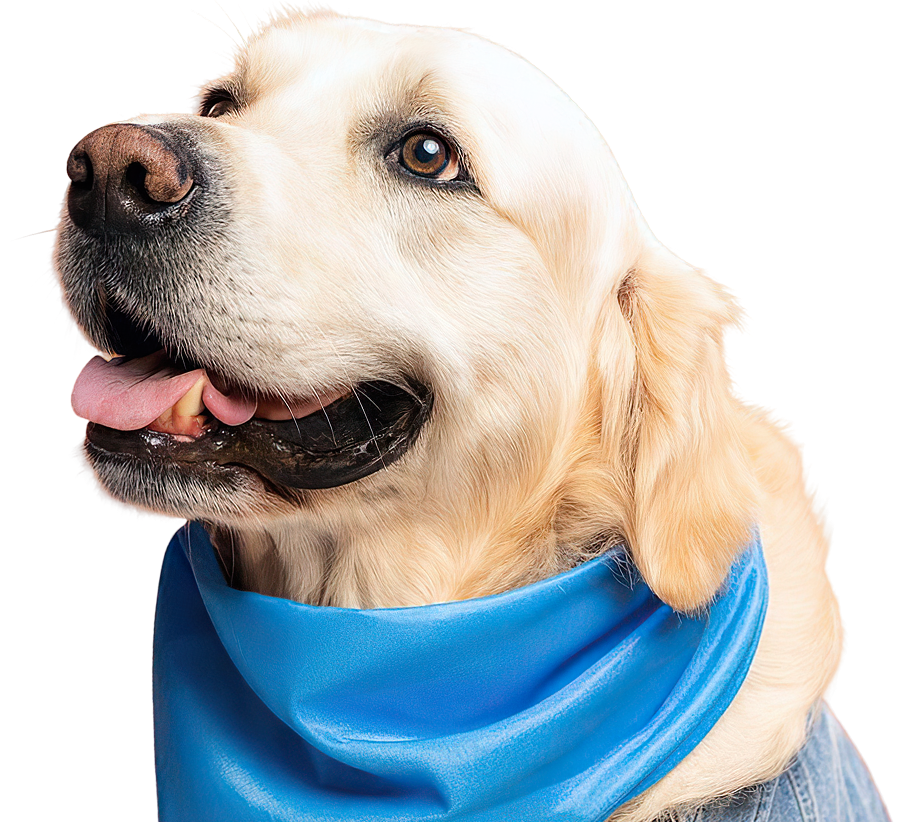Your Dog's Personality Changes Over Time: Why Understanding This Makes All the Difference
.jpg)
Growing Together: Understanding Your Dog’s Evolution
Dogs aren't just loyal companions. They're also ever-evolving beings. Just like us humans, dogs go through various life stages, and their "personality" can shift over time. Understanding these changes can greatly improve how we care for them, from choosing the right types of walks to preventing health or behavioral issues.
What is a Dog's "Personality"?
A dog's personality is the set of behaviors, preferences, and reactions they consistently display. Some dogs are more playful, while others are more observant. Some love action, while others prefer a quiet corner of the house. But just like a child doesn't behave like an adult, a puppy doesn't behave like a senior dog.
Recent studies show that traits like energy level, curiosity, stress tolerance, and attachment to humans can shift significantly throughout a dog's life. This isn't a flaw or a sign of something wrong. It's a natural part of growing and aging.
The Stages of a Dog's Life
Dogs experience emotional and behavioral growth just like people. As they age, their bodies, brains, and needs evolve. Each phase of a dog's life introduces not only physical changes but also shifts in how they interact with the world, with their guardians, and even with other animals. Recognizing what to expect in each stage helps create a stronger bond and ensures the care you provide aligns with who your dog is becoming. Being aware of these stages also allows you to better respond to their needs with compassion, rather than confusion or frustration.
Here's a simple breakdown:
Puppy (0 to 6 months)
- Highly curious
- Endless energy
- High sociability
- Low emotional control
Young (6 months to 2 years)
- Canine adolescence
- Testing boundaries
- Needs structure and consistency
- Intense learning period
Adult (2 to 7 years)
- More stable personality
- Predictable energy level
- Ideal phase for physical and mental activity
Senior (7 + years)
- Less interest in high-energy activities
- May show irritability or excessive attachment
- Behavior influenced by physiological changes
Why This Matters for Guardians
Knowing your dog won't stay the same forever is key to building a more empathetic and effective relationship. Often, behaviors seen as "problems" are simply natural transitions.
For example, a once super playful dog that begins avoiding toys may be entering adulthood or old age. Forcing the same routine could lead to frustration for both of you. Similarly, a young dog that starts to "disobey" might just be asserting independence, which is completely normal during their adolescent phase.
How to Adapt Care for Each Stage
To support your dog through personality changes, you can tailor their care based on their current life stage:
For Puppies:
- Encourage socialization with other dogs and people
- Use educational toys
- Be patient with mistakes
For Young Dogs:
- Keep training sessions short and frequent
- Introduce mental challenges like hide-and-seek or commands
- Reinforce boundaries with affection and consistency
For Adult Dogs:
- Promote regular exercise
- Try new activities like agility, trail walks, or object games
- Pay attention to subtle shifts in mood or energy
For Seniors:
- Reduce stimulation but maintain engagement
- Adapt toys and walks to their pace
- Provide extra attention to both physical and emotional health
The Role of Prevention and Awareness
Observing small behavioral shifts is a powerful way to spot early signs of stress, discomfort, or health issues. Dogs don't speak, but they communicate through their body language, eyes, posture, and routines. A dog who always ran to the door and now stays lying down might be in pain, overly tired, or emotionally withdrawn.
Changes in how they sleep, eat, play, or interact with people and other animals can be subtle warnings that something is shifting internally. Paying attention isn't overreacting. It's real care.
More than trying to hold on to who your dog was, the most important thing is to follow who they're becoming. Recognizing these shifts shouldn't make you sad. It should encourage you to be more present, more attentive, and more connected through every stage of their life.
Personality Is Not Destiny
Even though dogs have natural personality traits, their behavior is shaped by their environment, experiences, and relationship with humans. A fearful dog can grow confident over time. A hyperactive dog can learn to relax. It all depends on how we respond to their journey.
Caring for a dog means being open to their evolution. It requires adjusting expectations, updating routines, and providing emotional support along the way.
How Zibbly Can Support This Journey
Zibbly was created to follow your pet’s life with a caring and practical lens. We know each dog is unique, and their needs evolve over time.
Our system learns from your pet’s behaviors and can suggest:
- Routine updates for walks
- The best types of toys and activities for each life stage
- Alerts about signs of potential health changes
- Tips for handling emotional shifts
Zibbly also helps you keep a record of your dog’s health, behavior, and preferences. This makes vet checkups easier and helps prevent surprises. Recognizing that your dog’s personality can change is an act of love. Being present for them in every stage, with empathy and knowledge, is what makes your bond so meaningful. Zibbly is here to walk that path with you.









